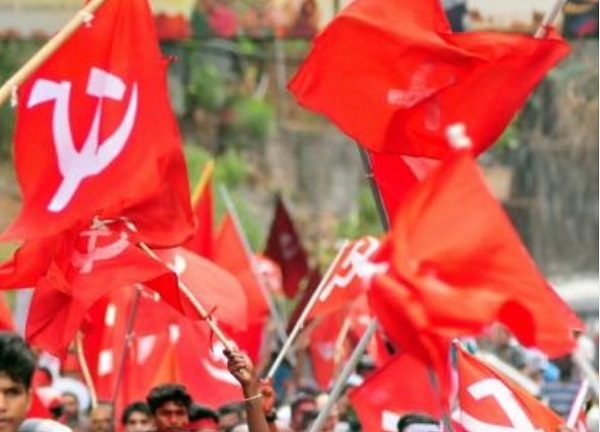Agartala, (Asian independent) The CPI-M-led Left Front in the recently concluded by-elections to the four assembly seats in Tripura has suffered a major setback, while the Congress with a solitary seat entered the state assembly after nine years. The ruling BJP’s total strength of 36 members remained unchanged in the 60-member house.
The new entrant — Trinamool Congress could not create significant impact securing with just 2.85 per cent votes.
In the June 23 by-polls, result of which declared on Sunday, the ruling Bharatiya Janata Party (BJP) won three seats including that of Chief Minister Manik Saha who has been elected to the state assembly for the first time from Town Bordowali defeating Congress candidate Asish Kumar Saha by a margin of 6,104 votes.
BJP candidate Malina Debnath won the Jubarajnagar seat defeating her nearest CPI-M rival Sailendra Chandra Nath by a margin of 4,572 votes while her party colleague Swapna Das (Paul) bagged the Surma (SC) seat thrashing her independent rival Baburam Satnami by a margin of 4,583 votes.
The saffron party wrested the Jubarajnagar seat from the CPI-M while retaining the other two seats. In a significant political development, BJP-turned Congress leader Sudip Roy Barman retained his Agartala constituency for the sixth time in a row defeating his BJP rival Ashok Sinha by a margin of 3,163 votes.
With the victory of Roy Barman, Congress re-entered the 60-member state assembly after nine years.
The by-election is being termed by the political pundits as a “semi-final” before the 60-member Assembly elections, which is just eight months away.
The focus of the by-elections was mainly on the Town Bordowali Assembly constituency where Manik Saha contested against five other candidates.
Saha, BJP’s state president and a Rajya Sabha member who assumed office on May 15, a day after Biplab Kumar Deb’s resignation from the post of chief minister, contested the election for the first time.
To fulfil the constitutional binding, he has to become a member of the Assembly within six months.
The by-polls were necessitated after the resignation of three BJP MLAs including former Minister Sudip Roy Barman following the open revolt against Biplab Kumar Deb and the death of CPI-M legislator Ramendra Chandra Debnath.
In the by-elections, the BJP got 44.90 per cent votes followed by CPI-M led Left Front 22.02 per cent, Congress 20.10. Though the Left parties in the overall vote percentage managed the second position, they went third position in the results in the three out of four seats.
Political commentator and writer Sekhar Datta said that it was seen in the 2018 assembly polls, when the Left parties voted out by the BJP, that their (Left parties dominated by the CPI-M) massive political base erosion among the tribal, scheduled caste and other backward communities led to poor performance in the elections.
“If the Left parties want to regain their political base, they must change their mindset and political strategies. They must bring more young, women, tribal and OBC leaders to lead the party,” Datta told IANS.
The Left Front governed Tripura for 35 years (1978 to 1988 and 1993 to 2018) until 2018, when the Left parties suffered a humiliating defeat by the BJP.
Another political analyst and editor of a leading daily Sanjib Deb said that a third spectrum — TIPRA (Tipraha Indigenous Progressive Regional Alliance) headed by Tripura’s royal scion, Pradyot Bikram Manikya Deb Barman — emerged in the state politics.
“Until recent years, the politics of Tripura was dominated by the Left and non-Left parties. Now the new entrant TIPRA is taking the vote share, mostly tribal votes, of the three national parties – BJP, CPI-M and the Congress,” Deb told IANS.
In the Surma (reserved for the scheduled caste communities) seat, independent candidate Baburam Satnami, backed by TIPRA, secured the second position pushing the CPI-M into third position.
(Sujit Chakraborty can be contacted at [email protected])








